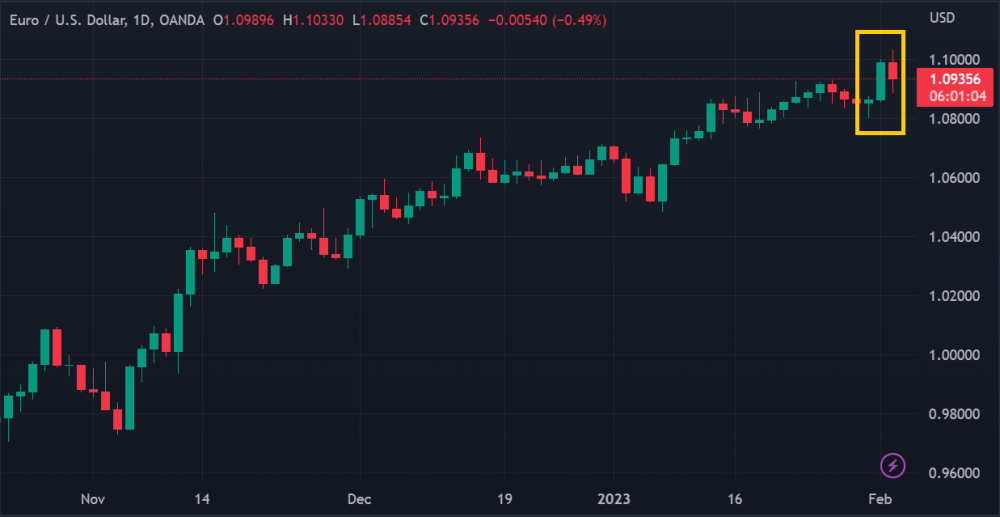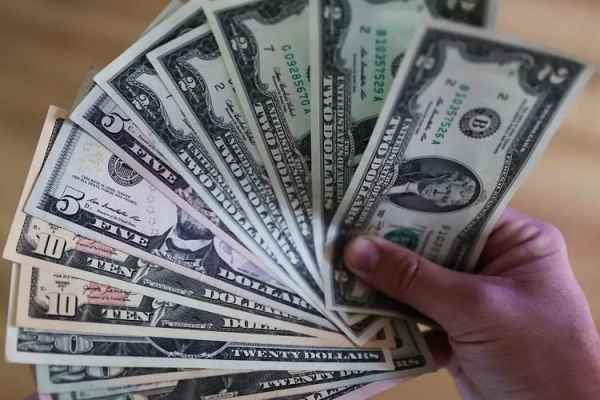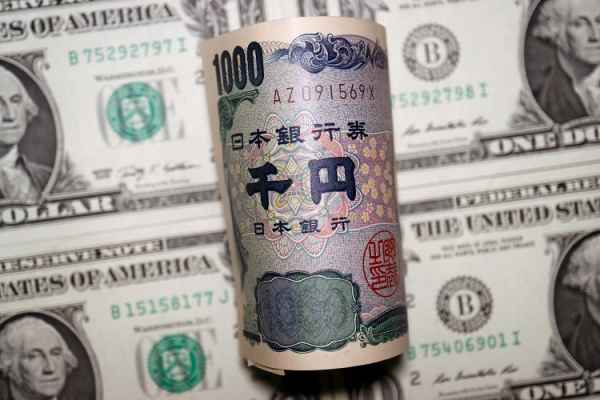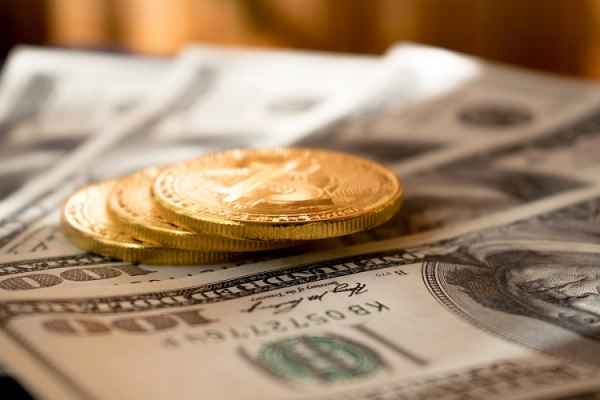The ECB added dovish cues to its rate hike announcement, leaving the euro weaker against EUR/USD and other pairs.
The EUR/USD pair touched its highest level at 1.1033 in trading this Thursday, February 2, but then slipped to around 1.0900 after the announcement of the results of the European Central Bank (ECB) meeting. The reason is that the ECB added a dovish signal to its announcement of an increase in interest rates.

The ECB raised interest rates tonight according to market expectations, namely by 50 basis points. They also affirmed their intention to continue "raising interest rates significantly" and "maintaining them at a fairly restrictive level" in order to achieve their medium-term inflation target of 2%. However, the ECB's subsequent statement sparked market questions about the direction of European interest rates beyond the first quarter.
"The Board of Governors intends to raise interest rates by another 50 basis points in March and then evaluate the next course of monetary policy," the ECB said in a statement.
Market participants can assume that the ECB is likely to raise interest rates just one more time this year, then end the "rate hike" cycle. This assumption is relatively more dovish than the results of the previous ECB meeting and, at the same time, in line with market pessimism about the prospects for the Eurozone economy. As a result, the future of the euro is again under threat.
"We marked a reversal in US inflation in mid-2022 and proved right. Slowing US inflation allowed the Fed to pivot dovish, pushing the USD lower. Now it's the ECB's turn. A similar slowdown in inflation is happening in the Eurozone. The euro will fall," said Robin Brooks, Chief Economist at IIF and former Head of FX Strategy at Goldman Sachs.
When the news was written in mid-New York session, the euro was observed to have weakened against the US dollar and Japanese yen by around 0.5 percent and 1.0 percent, respectively. EUR/GBP fell but held onto multi-month highs, as the tone for tonight's UK central bank meeting outcome is much more dovish than the ECB.

 Dedicated FREE FOREX VPS
Dedicated FREE FOREX VPS Free FOREX Virtual Private Server
Free FOREX Virtual Private Server MT4 Demo Contest, Get $500
MT4 Demo Contest, Get $500 Sign Up for an Account, Claim 60% Deposit Bonus
Sign Up for an Account, Claim 60% Deposit Bonus Free MT4/MT5 VPS 2024
Free MT4/MT5 VPS 2024 Send E-mail and Get Free Merchandise
Send E-mail and Get Free Merchandise $1K Refer a Friend Bonus for Pepperstone Pro clients
$1K Refer a Friend Bonus for Pepperstone Pro clients Maximize Your Earnings with 100% Deposit bonus
Maximize Your Earnings with 100% Deposit bonus Trade to Win, $5,000 Monthly Demo Contest
Trade to Win, $5,000 Monthly Demo Contest Claim 30% + 15% Deposit Bonus from LiteFinance
Claim 30% + 15% Deposit Bonus from LiteFinance






